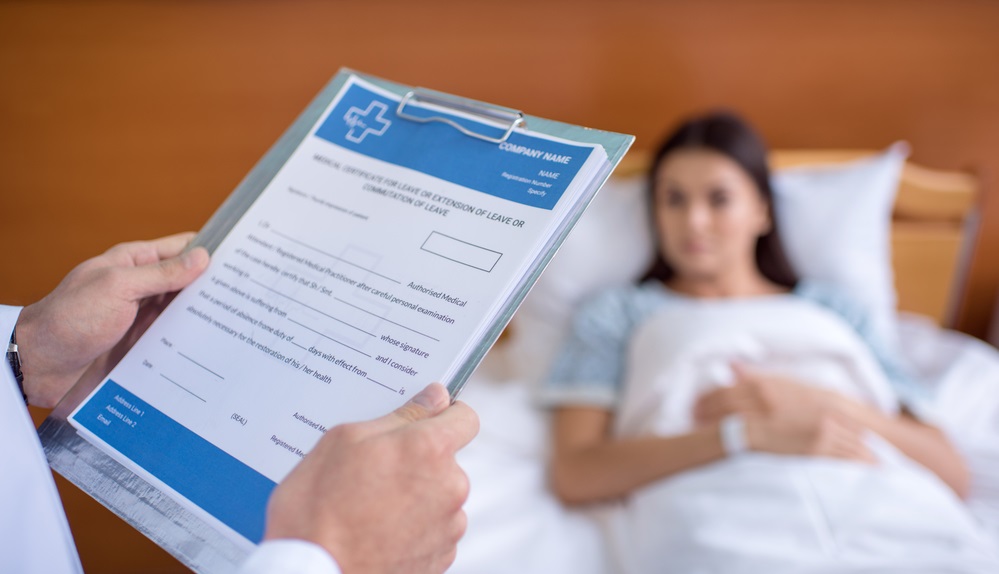
What Medical Evidence Do I Need to File A Personal Injury Claim?
A serious injury can change your entire life in a single instant. So, if another person’s negligence is to blame, filing a personal injury claim could help you get your life back on track. To file a successful personal injury claim, you’ll need to provide medical evidence of your injuries. But what kind of information counts as “medical evidence,” and how can you find these records? That’s what we’re here to discuss.
Below, find an overview of medical evidence in Rhode Island personal injury claims and learn how a Providence personal injury lawyer can help you build your case and instruct you how to get medical evidence.
What is medical evidence?
All personal injury claims need sufficient evidence to prove their allegations. So, you’ll need to provide proof that you are injured to form the basis for your case, usually in the form of medical documents from a certified health professional.
Examples of medical evidence can include:
- Results from physician examinations
- Hospital records or discharge documents
- Diagnostic testing or other clinical test results
- Prescriptions or records of treatment plans
Important note: Always seek treatment after an accident
Since clear documentation of medical records is crucial to building a Rhode Island personal injury case, it’s vital to begin recording them as soon as possible. This means you should take every opportunity to seek treatment, such as allowing first responders to treat you at an accident scene.
Not only can refusing treatment result in a lack of a paper trail, but insurance companies can also use this against you. They may say that by refusing treatment at the accident scene that you weren’t really hurt at the scene, and that your injuries are the result of another primary cause. So, seek medical care as soon as you reasonably can.
Can I look up my own medical records?
Yes. In most cases, you can get medical records directly from the healthcare provider or hospital where you received treatment.
How to request your medical records from a hospital or doctor
In general, you can request copies of your medical records via the following methods.
- Online: If the healthcare facility has an online patient portal, you may be able to request or download copies of your medical records there.
- Phone: You can call the facility and ask for copies of your records to be sent by email or in the mail.
- In person: If you’re able to, you can try visiting the healthcare facility in person to request copies.
Due to HIIPA rules, you may need to fill out a form or provide a form of identification, like your driver’s license, to prevent unauthorized people from gaining access to your records.
What other medical evidence do I need to file a personal injury claim?
Getting your medical evidence is only one piece of the puzzle. Beyond simply proving that you have an injury that impacts your quality of life, you’ll also need to connect your injury to the incident in question – and prove that another person or party’s negligence caused the incident.
To prove negligence in a personal injury claim, you’ll need to provide evidence of the following elements.
- Duty of care. The other person owed you a “duty of care.” For example, when you enter another person’s home or property, they may possess a duty to keep the space safe for visitors. When someone gets behind the wheel of a vehicle, they have the duty to drive responsibly and keep other motorists safe.
- Breach of duty. The other person should follow the same level of care that a “reasonable person” would in the same situation. But if they don’t meet these standards, you can argue that they “breached their duty” of care, such as by driving distracted or failing to fix a rickety railing on the stairs.
- Cause. Lastly, you’ll need to tie it all together and prove that the other person’s negligence ultimately caused your injury. You may need to provide evidence that the other person should have reasonably known that their actions could have resulted in harm. For instance, if a driver fails to stop at a stop sign, it’s reasonable to assume that violating the traffic rule could result in a collision.
Unfortunately, cause is often the most difficult element to prove in a personal injury case. Without it, your personal injury claim can unravel at the seams. So, if you aren’t sure what information could demonstrate cause in your case, a dedicated Rhode Island personal injury lawyer could offer guidance on your next step.
How can a Rhode Island personal injury lawyer help me find medical evidence?
While you can gather medical evidence and other key information on your own, the process can feel overwhelming when your focus should lie on healing your body and mind. So, it can be helpful to let a personal injury attorney, like those at Petrarca Law, collect this information for you.
We can gather the necessary medical records and other key evidence on your behalf, so you won’t need to spend time and energy navigating a sea of paperwork. When we have all the necessary documents, we can begin filing your claim and negotiating on your behalf, so you can focus on recovering.
Contact us today to learn how we can impact your chances of winning a personal injury lawsuit.

